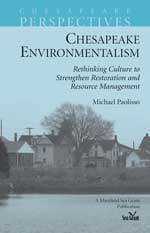Knauss legislative fellowships in Congress help build careers — and they're fun and educational. See our video and fact sheet for details.
Maryland Sea Grant Helps Establish New Center in Puerto Rico to Prepare Hispanic Students in Coastal Science

Puerto Rico is home to many natural treasures including unusual coastal bays that glow in the dark. Now, more students will get a chance to explore these and other marine resources on the island. Maryland Sea Grant, in partnership with several universities in Puerto Rico and the U.S. mainland, has received federal funding to create a collaborative research-and-education center in Puerto Rico that will provide new opportunities for Hispanic undergraduate students in coastal science.
Centro TORTUGA stands for Tropical Oceanography Research Training for Undergraduate Academics. (“Tortuga” is Spanish for turtle.) The center will use funding from the National Science Foundation to build on an existing multi-year project in which Maryland Sea Grant brought together Maryland coastal scientists, science faculty members at universities in Puerto Rico, and students at those institutions for research and education activities.
The new center has ambitious goals for increasing the number of Hispanic students studying marine and coastal science at the undergraduate and graduate levels both in Puerto Rico and at academic institutions on the U.S. mainland. Improving educational opportunities for Hispanic students will help to address a wider national problem – the relatively low retention and graduation rates for students from some groups underrepresented in STEM fields (science, technology, engineering, and mathematics).
Centro TORTUGA seeks to overcome this challenge by building capacity for students to participate in education and research activities across multiple institutions and STEM disciplines. Because of shortcomings in funding and infrastructure, these opportunities are not common at primarily non-research universities like those serving the majority of college students in Puerto Rico. Such institutions are well suited to participate in this project because they are often especially strong in educating undergraduates who are not well prepared academically, including those who have had limited access to college preparation coursework and come from underserved communities and lower-income brackets.
The Centro TORTUGA project will provide undergraduate students with a variety of research and educational opportunities in the geosciences with an emphasis on coastal systems. These offerings include academic-year and summer courses in the geosciences featuring hands-on research and related, experiential learning. The center will give students exposure to marine science professionals through networking, internships, and national meetings. Students will receive mentoring support and professional development seminars that can further prepare them to transition to the geosciences workforce or graduate education. The program focuses on providing mentoring and critical support for students during key transition points in their education from high school through their undergraduate careers.
Centro TORTUGA will build on an existing partnership between educators and scientists in Maryland and Puerto Rico that was funded by the National Science Foundation through its Research Experiences for Undergraduates program. A focus of the partnership to date has been pilot programs in which researchers and students have investigated physical and ecological dynamics in tropical bioluminescent and non-bioluminescent coastal lagoons and their watersheds in Puerto Rico. Bioluminescent lagoons glow at night, an effect created by single-celled marine organisms called dinoflagellates. These ecosystems support tourism and fishing – economic drivers for the island — but their physical and ecological controls are poorly understood.
The project’s strong and diverse interdisciplinary team of scientists and educators includes faculty members from the University of Maryland Center for Environmental Science (UMCES) who have committed themselves to carrying out impactful research programs, providing rigorous education, and increasing opportunities for groups underrepresented in STEM fields. UMCES scientists have traveled to Puerto Rico to work with students and faculty colleagues there and have also hosted students from Puerto Rico who traveled to Maryland to conduct summer research on the Chesapeake Bay. The program benefits from a strong collaboration with partners at the Universidad del Turabo and Universidad Metropolitana.
“Maryland Sea Grant is honored to collaborate with gifted scientists and mentors in Maryland and Puerto Rico to build a new center for experiential learning and research in geosciences,” said Fredrika C. Moser, Ph.D., director of Maryland Sea Grant and a geological scientist. “The bioluminescent lagoons are important to the ecology and economy of Puerto Rico, and we are thrilled to help train the next generation of geoscientists in understanding and conserving these critical habitats.”
“Our coastal and marine natural resources are faced with pressing issues related to climate change, land use impacts from altered watersheds, altered food webs and a host of other impacts from human populations,” said Lora Harris, an ecologist and associate professor at UMCES’ Chesapeake Biological Laboratory who is participating in the project. “To adapt and respond to these changes, we need a talented geoscience workforce that draws from as broad a population as possible.”
“This is a great opportunity to build on our already successful work with our colleagues in Puerto Rico, to learn more about these fascinating systems, and to work with some enthusiastic students," said Jamie Pierson, a biological oceanographer and assistant professor at UMCES’ Horn Point Laboratory who is also involved in the Centro TORTUGA project.
The project is supported by a three-year grant from the National Science Foundation through its program Improving Undergraduate STEM Education: Pathways into Geoscience. The program’s primary goal is to increase the number of undergraduate students interested in pursuing undergraduate degrees and/or postgraduate degrees in geoscience through the design and testing of novel approaches for engaging students in authentic, career-relevant experiences in geoscience. In order to broaden participation in the geosciences, a priority of the program is to engage undergraduate students from traditionally underrepresented groups or from non-geoscience degree programs.
Learn more about Maryland Sea Grant’s work in Puerto Rico at http://www.mdsg.umd.edu/education/puerto-rico-initiative
Find out more about Maryland Sea Grant's Research Experiences for Undergraduates summer program.






